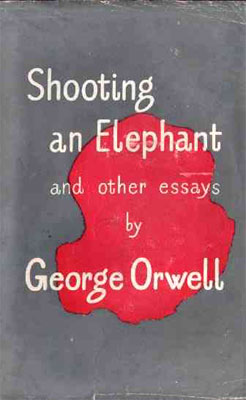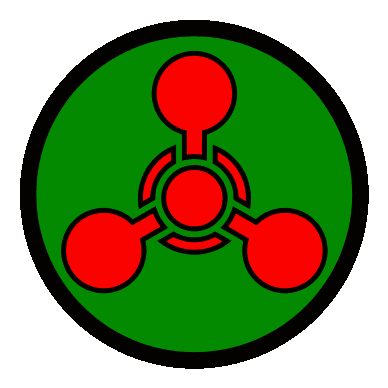 On Sunday, June 9th, a 39 year old man was arrested following a 911 call from inside actress Sandra Bullock’s Los Angeles home. The man was arrested after having scaled a fence on her property and gaining access to her home via a back door while she was asleep upstairs. She was not injured in the intrusion. An investigation of the individual led to his being charged with 19 felony counts, including: seven counts of possession of a machine gun, 2 counts of possession of an illegal assault weapon and 10 counts of possession of a destructive device (tracer bullets), in addition to breaking and entering and trespassing.
On Sunday, June 9th, a 39 year old man was arrested following a 911 call from inside actress Sandra Bullock’s Los Angeles home. The man was arrested after having scaled a fence on her property and gaining access to her home via a back door while she was asleep upstairs. She was not injured in the intrusion. An investigation of the individual led to his being charged with 19 felony counts, including: seven counts of possession of a machine gun, 2 counts of possession of an illegal assault weapon and 10 counts of possession of a destructive device (tracer bullets), in addition to breaking and entering and trespassing.
As horrifying as this is, we, as Americans did not even bother with a collective shrug. We barely blinked when a gunman opened fire in Santa Barbara or when there was yet another school shooting in Oregon. We have become accustomed to both violence and guns. Too many of us are numb to it now. Couple that with the pervasive misogyny of the intertwined subcultures of men, guns and violence and you begin to see the framework upon which our society is now built and upon which some of our elected officials feed.
Ms. Bullock was in Los Angeles to accept an award. Nothing surprising there! Actors and actresses have an entire season dedicated to celebrating their celebrity. However, this award speaks to the subculture we’re discussing. Spike TV holds a Guy’s Choice Awards show every year. Ms. Bullock was there to accept their “Decade of Hotness” award. Now, whether or not Ms. Bullock is a talented actor is best left to individual taste (however her box office receipts and salary per movie indicate that she is worth the investment), but must we award “hotness”? How, in 2014, am I supposed to look at my daughter and tell her not to be too concerned with her looks, that we celebrate intellect and passion above appearance? She would laugh until she cried. And then she would shatter every mirror in our house. We need only look at the tabloids at the checkout line to see the focus of our shallow society. From “Best Bikini Bods” to “Guess who went under the plastic surgeon’s knife?” to the latest drivel from all the celebrated-beyond-reason Kardashians, we idolize celebrity, but only pretty celebrities.
 On June 10, 1963, President Kennedy signed the Equal Pay Act of 1963 as an amendment to the 1938 Fair Labor Standards Act. Specifically, it states that:
On June 10, 1963, President Kennedy signed the Equal Pay Act of 1963 as an amendment to the 1938 Fair Labor Standards Act. Specifically, it states that:
No employer having employees subject to any provisions of this section shall discriminate, within any establishment in which such employees are employed, between employees on the basis of sex by paying wages to employees in such establishment at a rate less than the rate at which he pays wages to employees of the opposite sex in such establishment for equal work on jobs the performance of which requires equal skill, effort, and responsibility, and which are performed under similar working conditions…
However, according to a study of The White House’s National Equal Pay Task Force, in spite of the fact that women play a major role in the economic engine of America (as compared to 1963) and the fact that women now earn more advanced degrees in America than men, women had only closed the gender wage gap from 61 cents for every dollar earned by men in 1963 to 77 cents for every dollar earned by men in 2011, the latest year for which data is available. While undoubtedly a significant gain, one would think that a law passed in 1963 would have completely eradicated the difference by now.
It wasn’t until 1984 that the term “glass ceiling” was first used by former Family Circle Editor Gay Bryant, and that was used to describe the competition between women in reaching the highest levels of business. She is quoted as saying, “Women have reached a certain point – I call it the glass ceiling. They’re in the top of middle management and they’re stopping and getting stuck.” This definition of the glass ceiling would seem to mesh with the findings of the Council of Graduate Schools study where the majority of advanced degrees were obtained by women (59.5% of master’s degrees and 52.2% of doctoral degrees).
However, it is still a man’s world. From the media’s “sex sells” focus on female images Photoshopped beyond human anatomical limits to the overt compensation of men’s 3-story pickup trucks and need to openly carry AR-15’s and AK-47’s in Target and Home Depot, the male psyche is being beaten educationally and logically by women and has resorted to beating the female image with the only objects left to their stunted minds, guns and misogyny. Essentially, rather than dragging the woman to their cave by their hair, they subjugate her by obliquely beating her with the blunt object between their legs through anthropomorphic means in the form of a firearm. What a shame.

 If only men saw women as equals and sought their advice on the important social issues of our time, perhaps we would find a partner instead of a punching bag. As President Kennedy said repeatedly, beginning in 1959, “a rising tide lifts all boats.” Instead, members of Open Carry Texas have resorted to calling members of Moms Demand Action for Gun Sense in America, “thugs with jugs” and have a one minute free for all where they open fire on a female mannequin. Guns get bigger, but, we’re told,”they’re only used for hunting,” as if we are supposed to believe that deer, birds and rabbits have gotten exponentially larger and evolution has furnished them with Kevlar skin.
If only men saw women as equals and sought their advice on the important social issues of our time, perhaps we would find a partner instead of a punching bag. As President Kennedy said repeatedly, beginning in 1959, “a rising tide lifts all boats.” Instead, members of Open Carry Texas have resorted to calling members of Moms Demand Action for Gun Sense in America, “thugs with jugs” and have a one minute free for all where they open fire on a female mannequin. Guns get bigger, but, we’re told,”they’re only used for hunting,” as if we are supposed to believe that deer, birds and rabbits have gotten exponentially larger and evolution has furnished them with Kevlar skin.
We’ve become little boys with big toys (or more accurately, big boys with little minds and big guns). Am I expected to teach this to my daughter? Am I expected to treat my wife this way? Am I expected to subjugate my mother like this? And what does any of this teach my son? You may call me less than a man or a wimp or a feminist, but I’d rather open my arms and use my intelligence than open my legs and show my ignorance.
(If you’re interested in a little mental exercise, read this post. I was writing it in 2012 as news broke from Newtown, Connecticut of a shooting at an elementary school.)






